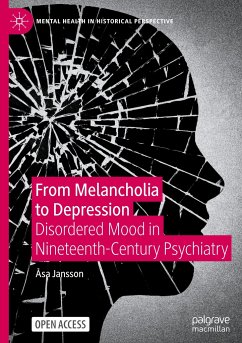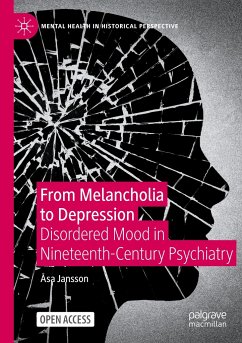
Preventing Mental Illness
Past, Present and Future
Herausgegeben: Kritsotaki, Despo; Long, Vicky; Smith, Matthew
Versandkostenfrei!
Versandfertig in 6-10 Tagen
51,99 €
inkl. MwSt.

PAYBACK Punkte
26 °P sammeln!
This book provides an overview of a diverse array of preventive strategies relating to mental illness, and identifies their achievements and shortcomings. The chapters in this collection illustrate how researchers, clinicians and policy makers drew inspiration from divergent fields of knowledge and practice: from eugenics, genetics and medication to mental hygiene, child guidance, social welfare, public health and education; from risk management to radical and social psychiatry, architectural design and environmental psychology. It highlights the shifting patterns of biological, social and psy...
This book provides an overview of a diverse array of preventive strategies relating to mental illness, and identifies their achievements and shortcomings. The chapters in this collection illustrate how researchers, clinicians and policy makers drew inspiration from divergent fields of knowledge and practice: from eugenics, genetics and medication to mental hygiene, child guidance, social welfare, public health and education; from risk management to radical and social psychiatry, architectural design and environmental psychology. It highlights the shifting patterns of biological, social and psychodynamic models, while adopting a gender perspective and considering professional developments as well as changing social and legal contexts, including deinstitutionalisation and social movements. Through vigorous research, the contributors demonstrate that preventive approaches to mental health have a long history, and point to the conclusion that it might well be possible to learn from such historical attempts. The book also explores which of these approaches are worth considering in future and which are best confined to the past. Within this context, the book aims at stoking and informing debate and conversation about how to prevent mental illness and improve mental health in the years to come.
Chapters 3, 10, and 12 of this book are available open access under a CC BY 4.0 license at link.springer.com
Chapters 3, 10, and 12 of this book are available open access under a CC BY 4.0 license at link.springer.com














